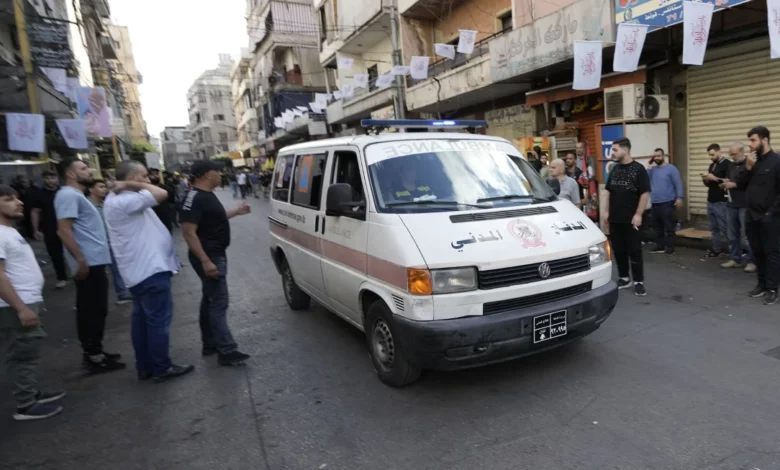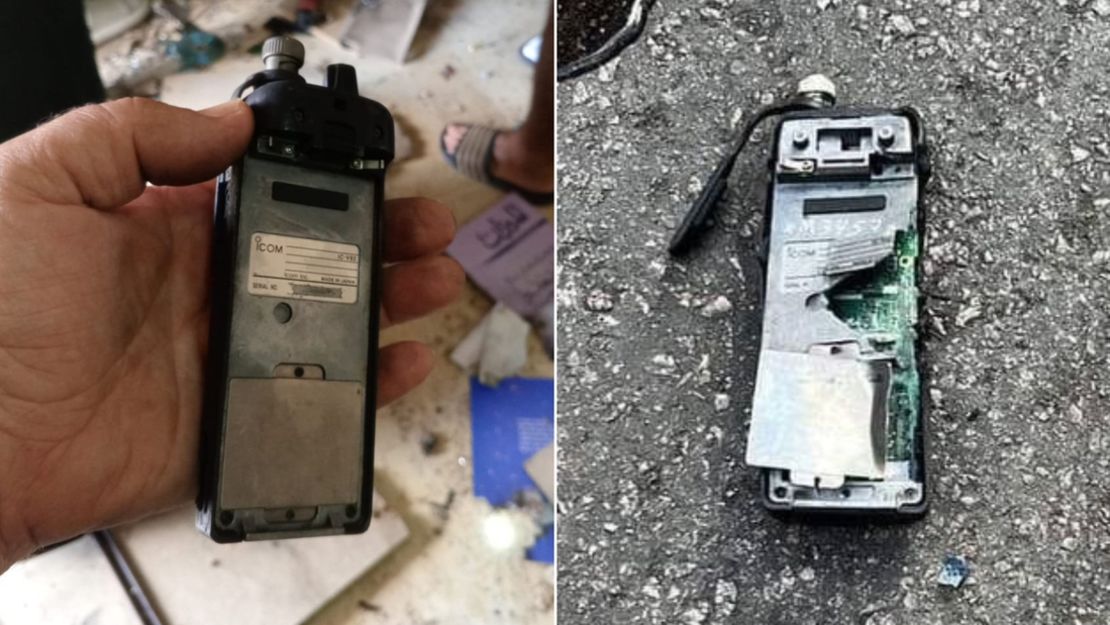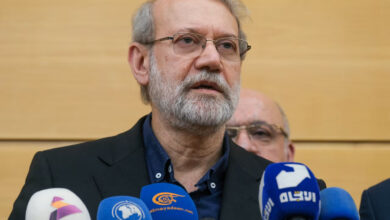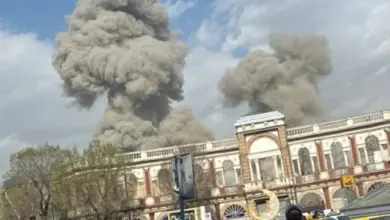
Almost exactly 24 hours after explosions targeting the pagers of Hezbollah members killed multiple people, including children, and injured more than 2,800, Lebanon was rocked by more deadly blasts as walkie-talkies detonated in Beirut and the south of the country.
At least 20 people were killed and more than 450 injured in Wednesday’s explosions, Lebanon’s health ministry said.
After declining to comment on Tuesday’s blasts, Israeli Defense Minister Yoav Gallant appeared to reference the attacks during a visit Wednesday to the Ramat-David Air Force base in northern Israel.
“We are at the beginning of a new era in this war and we need to adapt ourselves,” Gallant said. He praised the “excellent achievements” of the Israel Defense Forces (IDF), together with the country’s security agency, the Shin Bet, and its intelligence agency Mossad.
CNN previously reported that Tuesday’s operation was a joint effort between the IDF and Mossad, but Gallant’s comment is the first time an Israeli official has apparently acknowledged Israel’s role in the twin attacks.
An Israeli source familiar with national security later told CNN Israel launched the pager attack in a “use it or lose it” moment when it believed Hezbollah discovered the capability.
The pager explosions came hours after Israel on Monday voted to add another war objective to its conflict with Iran-backed Hamas and Hezbollah: ensuring the safe return of residents from communities along its border with Lebanon to their homes.
After nearly a year of tit-for-tat exchanges between Hezbollah and Israel, tens of thousands of people have been displaced in southern Lebanon and northern Israel. While the return of Israeli residents has long been understood to be a political necessity for Prime Minister Benjamin Netanyahu’s government, this is the first time it has been made an official war goal.
On Wednesday, Netanyahu reiterated his pledge to “bring back the residents of the north safely to their homes.”
A source familiar with the matter told CNN the IDF is moving the elite 98th Division from Gaza to northern Israel. “The center of gravity is moving north,” Gallant said. “The meaning is that we are diverting forces, resources, energy towards the north.”

Fresh wave of strikes
Dozens of ambulance crews from the Lebanese Red Cross were working to rescue and evacuate the injured after walkie-talkies exploded across the country Wednesday.
A witness who was at a Hezbollah funeral in Beirut’s southern suburbs on Wednesday described the chaos as walkie-talkies appeared to explode at around 5 p.m. local time (10 a.m. ET).
The witness, who cannot be named for security reasons, told CNN they heard a loud bang followed by screaming. They said the man whose wireless device exploded was covered in blood and his hands had been blown off.
Photos meanwhile showed walkie-talkies that were ripped apart in the explosions.
The Lebanese Civil Defense said it was working to put out fires in 60 homes and shops that started after the walkie-talkies exploded, including one in a lithium battery store.
Lebanon’s communications ministry said the walkie-talkies were a discontinued model made by Japanese firm ICOM. The IC-V82 devices were not supplied by a recognized agent, were not officially licensed and had not been vetted by the security services, the ministry said.
ICOM said in a statement Wednesday it was investigating the reports and that the model linked to the explosions was discontinued a decade ago. ICOM added it could not determine whether they were counterfeit or shipped by the company, though its website says all such IC-V82 devices in circulation are counterfeit.

Hezbollah on Tuesday vowed to respond to the Israeli pager attacks that killed at least 12 people and injured thousands across Lebanon. At least two children were killed in those blasts, Lebanese Health Minister Firass Abiad said.
United Nations Human Rights Chief Volker Türk said the pager attacks were a violation of international humanitarian law, which prohibits the use of booby traps – objects that civilians are likely to be attracted to or are associated with normal civilian daily use – and called for an “independent, thorough and transparent investigation.”
Speculation has mounted over how low-tech wireless communication devices could have been exploited, as well as the origins of those devices and a mysterious supply chain stretching from Taiwan to Hungary. The New York Times reported Tuesday that Israel hid explosives inside a batch of pagers ordered from Taiwanese manufacturer Gold Apollo and destined for Hezbollah. A switch was embedded to detonate them remotely, it added.
But Gold Apollo denied making the pagers bearing its brand name, and pointed to a Budapest-registered distributor as the manufacturer. Hungarian authorities denied Gold Apollo’s suggestion, saying that BAC Consulting “is a trading intermediary” with no manufacturing sites in the country.
Fears of escalation
The twin attacks in Lebanon risk further escalating tensions in the region already heightened over Israel’s war against Palestinian militant group Hamas in Gaza.
UN Secretary-General Antonio Guterres has urged parties to avert any further escalation. The UN chief said the “logic” of making all the devices explode was that of a “pre-emptive strike before a major military operation.”
Lebanon’s Foreign Minister Abdallah Bou Habib told CNN he fears the consecutive attacks signal a move to an “introduction to war.”
“It’s a scary moment and we are afraid (of) coming to war, because we don’t want a war,” said the foreign minister, calling on the UN Security Council and the United States to help re-establish peace along the Lebanon-Israel border.
CNN intelligence and security analyst Bob Baer also suggested Israel’s disruption of Hezbollah’s communications network could pave the way for an imminent military offensive in Lebanon.
“The fact that Israel got into their supply network is unprecedented,” Baer said, highlighting the disruption of Hezbollah’s use of walkie-talkies as particularly damaging because the group relies on them to call in fire coordinates, move ammunition and communicate in real time.
This leaves Hezbollah vulnerable if Israel moves forward with its military plans.
This is a developing story and will be updated.
CNN’s Dana Karni, Tamar Michaelis and Manveena Suri contributed reporting.




